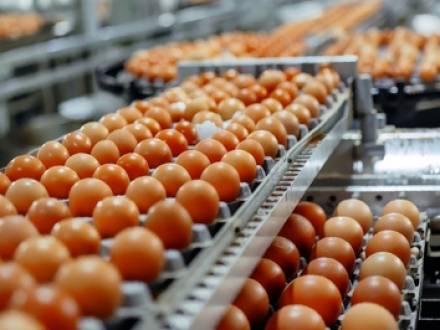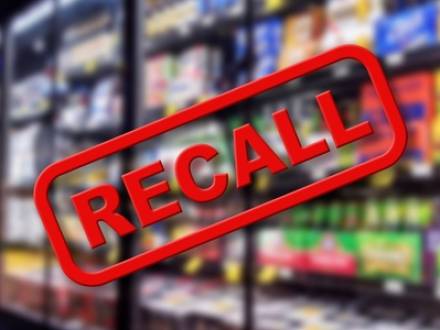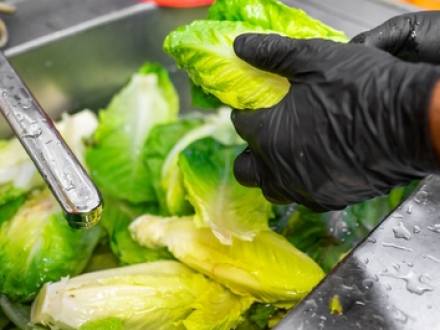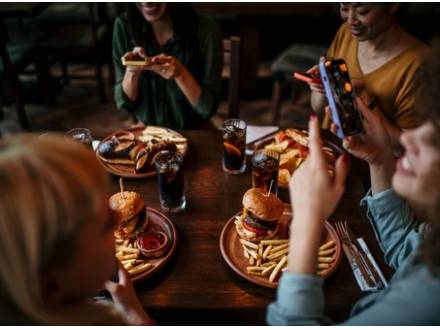
312-981-0409
161 N. Clark Street, Suite 1700, Chicago, IL 60601
Serving Clients Across 7 Illinois Locations
Recent Blog Posts
Recalled Enoki Mushrooms Pose Listeria Risks
 Illinois consumers may have purchased 200g packages of Enoki Mushrooms that are potentially contaminated with Listeria monocytogenes. Certain groups of people are at particular risk of harm posed by Listeria monocytogenes. If you or a loved one ate contaminated Enoki Mushrooms and became ill, our experienced Illinois food poisoning attorneys can help you collect the compensation you deserve.
Illinois consumers may have purchased 200g packages of Enoki Mushrooms that are potentially contaminated with Listeria monocytogenes. Certain groups of people are at particular risk of harm posed by Listeria monocytogenes. If you or a loved one ate contaminated Enoki Mushrooms and became ill, our experienced Illinois food poisoning attorneys can help you collect the compensation you deserve.
What Specific Enoki Mushrooms Were Recalled?
The recent recall affects 200g (7.05-ounce) clear green plastic packages of Enoki mushrooms labeled with the brand name "Enoki Mushroom" and distributed by Hofood99. These packages are in lot number 022202 and were marked with an expiration date of July 1, 2025. The UPC code for these products is 6 976532 310051.
New Salmonella Outbreak Linked to Egg Producer
 As of June 2025, a multi-state salmonella outbreak has been linked to contaminated eggs supplied out of Hilmar, California. The recalled eggs were sold under multiple brand names and distributed to restaurants, grocery stores, and wholesale buyers across several states, including Illinois.
As of June 2025, a multi-state salmonella outbreak has been linked to contaminated eggs supplied out of Hilmar, California. The recalled eggs were sold under multiple brand names and distributed to restaurants, grocery stores, and wholesale buyers across several states, including Illinois.
People who have developed symptoms of salmonella poisoning after eating eggs in recent months may have a legal claim for compensation. If you were hospitalized, diagnosed with salmonella, or suffered long-term complications, an Illinois food poisoning attorney can help you identify the source and hold negligent producers accountable.
Eggs Involved in Recent Nationwide Recalls
According to the recall advisory, the contaminated eggs include brown cage-free eggs and brown certified organic eggs with printed Julian Dates between "32" and "126," followed by plant code numbers "P-6562" or "CA-5330." These eggs were sold in fiber or plastic cartons and were distributed between February 3 and May 15, 2025, with sell-by dates ranging from March 4 to June 19, 2025.
Who Is Liable If a Restaurant Serves Recalled Foods?
 It sometimes seems as though the U.S. Food & Drug Administration announces recalls of foods almost daily. The FDA issues allergy and food poisoning alerts and recalls for everything from undeclared milk and nut allergens to cucumbers contaminated with salmonella. Before realizing the risks, restaurants may have purchased and served these foods.
It sometimes seems as though the U.S. Food & Drug Administration announces recalls of foods almost daily. The FDA issues allergy and food poisoning alerts and recalls for everything from undeclared milk and nut allergens to cucumbers contaminated with salmonella. Before realizing the risks, restaurants may have purchased and served these foods.
If you became ill or suffered an allergic reaction due to contaminated foods in a restaurant, you may wonder who is responsible for your damages. Several parties could be liable, and our knowledgeable Illinois food poisoning attorneys can hold all of them accountable.
What Is Salmonella?
Salmonella is a harmful bacterium that is often the cause of foodborne illnesses. Poultry, meat, and seafood can carry this bacteria, as can eggs, fresh produce, and dairy products. Symptoms of an infection usually appear within 12 to 72 hours. Fever, diarrhea, vomiting, nausea, and headaches are among the most common symptoms.
Understanding Liability for Norovirus Contamination in Food
 Norovirus causes severe inflammation in the stomach and intestines, resulting in excruciating pain from diarrhea and vomiting that can last for days. Finding the root cause of norovirus food poisoning can be challenging. However, if you were infected as a result of food contamination at a restaurant, nursing home, or other facility, an Illinois norovirus food poisoning attorney may be able to help establish liability and seek compensation for your suffering.
Norovirus causes severe inflammation in the stomach and intestines, resulting in excruciating pain from diarrhea and vomiting that can last for days. Finding the root cause of norovirus food poisoning can be challenging. However, if you were infected as a result of food contamination at a restaurant, nursing home, or other facility, an Illinois norovirus food poisoning attorney may be able to help establish liability and seek compensation for your suffering.
How Is Norovirus Spread?
Norovirus is highly contagious. It spreads when another person consumes particles of vomit or feces from an infected person, often through contaminated food, surfaces, and water. Spreading through food commonly results from one of the following actions:
-
Someone infected with norovirus uses their bare hands to touch food.
Can I Sue if I Lost My Pregnancy from Food Poisoning?
 Losing a pregnancy is a devastating experience. When that loss is caused by contaminated food, the grief is often compounded by anger and confusion. If you suffered a miscarriage after getting food poisoning, you may be wondering if the law allows you to hold someone accountable. In Illinois, the answer is yes: depending on the circumstances, you may be able to file a lawsuit and seek compensation for your losses.
Losing a pregnancy is a devastating experience. When that loss is caused by contaminated food, the grief is often compounded by anger and confusion. If you suffered a miscarriage after getting food poisoning, you may be wondering if the law allows you to hold someone accountable. In Illinois, the answer is yes: depending on the circumstances, you may be able to file a lawsuit and seek compensation for your losses.
Food poisoning cases are complex, but with the right legal guidance from our Illinois food poisoning lawyers, families affected by this kind of trauma can pursue justice and find a path toward healing.
How Can Food Poisoning Cause Pregnancy Loss?
Some foodborne illnesses are especially dangerous for pregnant women. Listeria, in particular, is a harmful bacterium that can be found in deli meats, unpasteurized cheeses, smoked fish, and certain packaged foods. Even a mild case of food poisoning for a healthy adult can lead to miscarriage, stillbirth, or premature labor when a pregnancy is involved.
Recoverable Damages From a Restaurant Food Poisoning Case
 Food poisoning victims often suffer excruciatingly painful symptoms, including vomiting and diarrhea, which can last for days. Common causes are bacteria, such as E. Coli, or norovirus. Under Illinois law, you have the right to seek compensation if a restaurant is directly responsible for your illnesses. Whether you recovered at home or spent time in the hospital due to the restaurant’s negligence, Illinois food poisoning attorneys can help you identify and fight for the losses you sustained.
Food poisoning victims often suffer excruciatingly painful symptoms, including vomiting and diarrhea, which can last for days. Common causes are bacteria, such as E. Coli, or norovirus. Under Illinois law, you have the right to seek compensation if a restaurant is directly responsible for your illnesses. Whether you recovered at home or spent time in the hospital due to the restaurant’s negligence, Illinois food poisoning attorneys can help you identify and fight for the losses you sustained.
Seeking Compensation for Economic Losses from Food Poisoning at a Restaurant
Consider the financial damage you suffered because of food poisoning. If you went to the doctor or hospital, you likely accumulated medical bills. If you are facing long-term healthcare needs because of your illness, your medical care can become very expensive. People often miss work, sometimes for extended periods, resulting in significant lost wages. These are recoverable monetary losses, including ongoing medical treatments.
What if My Child Suffers an Allergic Reaction at Daycare?
 When you send your child to a daycare, you trust and expect them to provide a safe environment, especially when it comes to food allergies. For some children with severe food allergies, the risk of accidental exposure can be life-threatening. But what happens when a daycare fails to protect your child from allergens, and your child suffers an allergic reaction as a result? A knowledgeable Illinois personal injury lawyer can help you understand your legal rights.
When you send your child to a daycare, you trust and expect them to provide a safe environment, especially when it comes to food allergies. For some children with severe food allergies, the risk of accidental exposure can be life-threatening. But what happens when a daycare fails to protect your child from allergens, and your child suffers an allergic reaction as a result? A knowledgeable Illinois personal injury lawyer can help you understand your legal rights.
What Does Illinois Law Say About Food Allergies in Daycares?
Illinois law places a strong emphasis on safeguarding children from food allergens in educational and childcare settings. Daycares are legally required to create action plans to prevent food exposure, especially if they have been informed of a child's allergies. If your child suffers a food-related allergic reaction due to daycare negligence, you are legally entitled to hold the facility accountable for the harm caused.
How Can I Prove That a Restaurant Caused My Illness?
 Food poisoning is an awful, painful, and sometimes dangerous experience. If you became ill after eating contaminated food, you might be entitled to compensation for your medical expenses, lost wages, and other damages. However, it can be challenging to prove that a specific establishment caused your illness. There are several steps you can take to demonstrate its liability for your food poisoning. To learn more, speak with an experienced Illinois food poisoning lawyer who can explain how to build a case that proves your claims and protects your interests.
Food poisoning is an awful, painful, and sometimes dangerous experience. If you became ill after eating contaminated food, you might be entitled to compensation for your medical expenses, lost wages, and other damages. However, it can be challenging to prove that a specific establishment caused your illness. There are several steps you can take to demonstrate its liability for your food poisoning. To learn more, speak with an experienced Illinois food poisoning lawyer who can explain how to build a case that proves your claims and protects your interests.
Step 1: Seek Medical Attention
If you suspect you have food poisoning, your health should be your top priority. Go to a doctor or hospital to be examined as soon as possible. This serves two important purposes. First, it ensures you receive proper treatment. Second, this establishes documentation of our claims. Your medical records can serve as critical evidence in your case. When you are checked, make sure to describe your symptoms, when they started, and what foods you consumed before becoming ill.
Mother and Son on Vacation Abroad Die From Food Poisoning
 A Canadian family has filed a wrongful death lawsuit after a mother and son suffered severe food poisoning while vacationing in the Dominican Republic. The family was staying at an all-inclusive resort and had eaten at the resort’s buffet shortly before the mother and son fell ill. The woman and her school-age son became severely ill, while her husband and other son suffered less serious symptoms of food poisoning. While the family began asking the resort staff to get them medical help when it became clear that they were very ill, help did not come until it was too late. The lawsuit filed against the Wyndham-branded resort the family stayed at alleges that unsanitary conditions in the resort’s food preparation areas caused the family's illness. Surviving husband and father is asking for over ten million dollars in damages to compensate him and his surviving son for their losses.
A Canadian family has filed a wrongful death lawsuit after a mother and son suffered severe food poisoning while vacationing in the Dominican Republic. The family was staying at an all-inclusive resort and had eaten at the resort’s buffet shortly before the mother and son fell ill. The woman and her school-age son became severely ill, while her husband and other son suffered less serious symptoms of food poisoning. While the family began asking the resort staff to get them medical help when it became clear that they were very ill, help did not come until it was too late. The lawsuit filed against the Wyndham-branded resort the family stayed at alleges that unsanitary conditions in the resort’s food preparation areas caused the family's illness. Surviving husband and father is asking for over ten million dollars in damages to compensate him and his surviving son for their losses.
If you have lost a close family member to severe food poisoning, you may be able to recover compensation by filing a wrongful death lawsuit. While nothing can bring your family member back, pursuing damages can help keep your surviving family financially secure in the wake of a loss. Our experienced Illinois food poisoning lawyers will strive to help you hold the food supplier that made your family member ill accountable.
Millions of Donuts and Other Baked Goods Recalled
 Around two million donuts and other baked goods were recalled because of fears of listeria contamination. Major suppliers, including Dunkin’ Donuts, were involved in the voluntary recall.
Around two million donuts and other baked goods were recalled because of fears of listeria contamination. Major suppliers, including Dunkin’ Donuts, were involved in the voluntary recall.
Although the possible source of contamination was not identified by the FDA, a wide variety of goods was recalled, including rolls, donuts, eclairs, and other confectioneries. If you believe you were injured as a result of food poisoning from this or any other source, contact our Illinois food poisoning lawsuit attorneys right away. Time is of the essence when gathering information about food poisoning lawsuits, so the sooner you act, the more likely your case is to be successful.
What Happens if You Get Listeria Poisoning?
People who come into contact with listeria can suffer from listeriosis, a serious foodborne illness specifically caused by listeria bacteria. Certain people – such as pregnant women, elderly people, and very young children – are at heightened risk of contracting a very serious form of listeriosis, which can include terrible suffering and even death. Symptoms of listeriosis include, but are not limited to:
-

Foreclosure and Bankruptcy
Visit Website -

Real Estate and Estate Planning
Visit Website -

Personal Injury
Visit Website

 Spanish
Spanish














